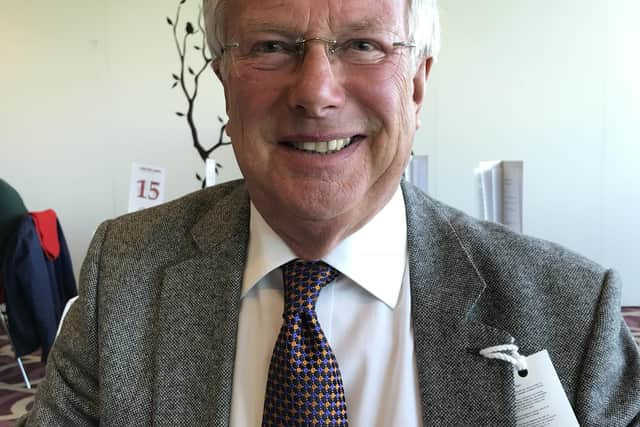Chichester businessman fundraising to build a statue honouring sailors who fought the slave trade
and live on Freeview channel 276
If completed, the statue would consist of three separate parts: a shackled slave, a British naval officer, and a freed slave raising his hands to the air. It was designed by Cicestrian sculptor Vincent Gray, who is also responsible for the John Keats statue in Eastgate, and the Nelson and Murray statue on East East Street. Fundraiser organiser Colin Kemp said it’s intended to tell the story of the Royal Navy’s role in ending the Atlantic Slave Trade, paying particular homage to the West Africa Squadron, who patrolled the West African Coast to suppress the slave trade, which was outlawed in 1807.
The fundraiser has already raised over £9,000 and Mr Kemp said the statue should be erected in Portsmouth, if possible, since it’s the city in which the West Africa Squadron was based, adding that Chichester would be an excellent second choice.
Advertisement
Hide AdAdvertisement
Hide Ad“The ideal place for it would be Portsmouth, but Chichester would be great too We have a real history of historic sculpture here. There’s no reason it shouldn’t be in Chichester if it's not possible to erect in Portsmouth.”


Mr Kemp first stumbled on the story of the West Africa Squadron while researching some family history. Having never heard of them before, and aware that very few other people had, he felt something had to be done to mark their chapter in British history.
He sees the West Africa Squadron as something to be proud of, and a counterpoint to the indefensible cruelty of the slave trade.
"I’m not going to defend slavery, or the people who made money out of slavery. You can’t. It’s horrible,” he said. “But Britain was the first country to ban it, and we used the power of the Royal Navy to enforce that ban through the West Africa Squadron.”
“”I love history, and I’m very proud of Britain and what we have done, so I thought it was time to take pride in our part in the history of slavery.”